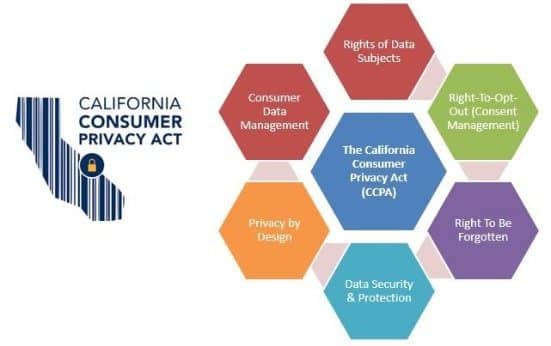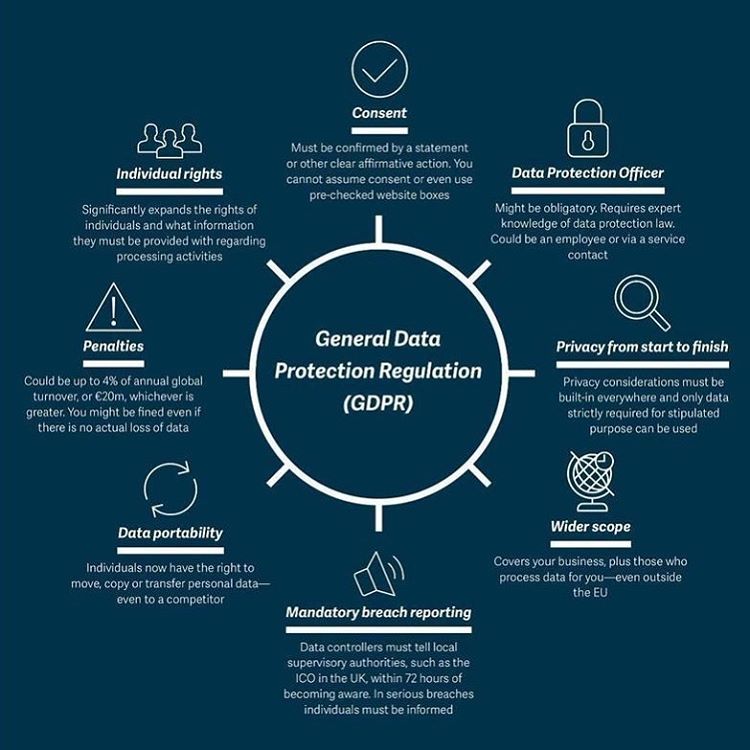Compliance and data privacy are two essential tools for a business to maintain goodwill and trust among their consumers.
The data-dependent world has initiated a wide range of privacy issues into question, including personal information and activity. And all businesses must comply with data privacy laws for maximum security.
So honestly, as a law graduate, you can only benefit from a comprehensive primer on data security regulations. Let’s jump straight into it.
What Is Compliance?
Compliance, in corporate terms, means abiding by regulations and standards set by a higher regulatory authority.
There are many regulators in the business world, and they vary from one product to the other. Violation of compliance can cause severe repercussions, including penalties, fines, and legal punishment.
Additionally, they also ruin the brand’s image among consumers and need to redeem themselves over audits from a regulator.
Compliance laws are built in a way to promote safety for employees, end-users, and the environment.
There are many institutions like the International Organisation of Standards (ISO) and the American National Standards Institute (ANSI) that set the standards of various products and services.
Depending on the standards, you may get approved to place the ISO or ANSI mark on your products.
There are many regulatory compliance laws, such as:
- The Health Insurance Portability and Accountability Act (HIPPA)
- The California Consumer Protection Act (CCPA)
- The Federal Information Security Management Act (FISMA)
In recent years, data compliance laws have increased substantially. Thus, there is an increased number of compliance analyst jobs in the market.
The Importance Of Data Privacy
Privacy is a major human right and is as important as freedom. We leave our digital footprint on every website we visit and are not even aware of the data they collect about us.
It is our right to know the type of data collected by different apps and websites. Most legal bodies and institutions believe that there must be clear transparency between consumers and businesses on this matter.
Hence, businesses may face severe consequences if they do not take consumer data or share their data without consent to other people. The liabilities will depend on the data and the region.
The Legal Framework For Data Privacy In The US And EU
CCPA
The California Consumer Protection Act protects the rights of every Californian in the United States. Every American business is obligated to follow this rule. The following rules are applicable under the CCPA:
- All businesses collecting details about California citizens must provide them with the option to rescind any data collection by the company or its sale to any of these parties.
- On their website, businesses must provide clear instructions for California citizens to exercise their CCPA right to opt-out of a data-sharing agreement.
- All businesses must inform the users of the information they collect from the users and ask for consent before data collection.
GDPR
In addition to CCPA, US businesses must also adhere to the General Data Protection Regulation (GDPR). However, these protect the rights of EU citizens alone.
According to this rule, EU citizens should be given free access to all the data that the company collects, as well as information about the data controller and processor.
The GDPR rules are as follows:
- Only the necessary data can be acquired, provided it is within legal reason.
- Businesses can not retain the data of EU citizens indefinitely. The term limit of data retention is set to five years.
In addition to these major rules, every state has its data privacy policy.
How Compliance And Data Privacy Can Help Law Graduates
Successful lawyers keep reading. They often have shelves full of books about various rules and laws.
As a young law graduate, it is even more important for you to have a room stacked with books about a law that you can refer to at a moment’s notice.
Future lawyers handling corporate cases may often have to deal with compliance-related issues. As a compliance analyst in the company, you must understand the standards of the regulatory bodies.
As many organizations’ compliance issues change over time, businesses do not have skilled people to handle compliance policies.
Hence, they rely on lawyers who understand the rules and can analyze and advise on the changes to match the standards.
Standards of regulatory boards and institutions change or update every few years. It might not be possible to remember all the standards and regulations.
Moreover, different regions have different laws, and they can get a bit confusing. Hence, it is best to have an updated Primer of rules, regulations, and acts of different regulatory bodies operating across different regions.
With a solid foundation, one can even become a compliance analyst in a major company.
Exploring The Job Role Of A Compliance Analyst
The compliance analyst is an officer whose duty is to maintain legal and regulatory requirements. They provide valuable intel about standards through research and analysis of new rules, laws, and regulations.
Furthermore, they play a vital role in compliance audits and analyzing program effectiveness.
As a compliance analyst, the following tasks come under your purview:
- Research industry-standard compliance rules and regulations.
- Evaluate and conduct internal audits based on operational, functional, and procedural compliance.
- Analyze and update the documentation to meet existing compliance standards and policies.
- Communicate regulatory guidelines and policy requirements to the management as well as the departments.
- Maintain records of product compliance as per standards
- Train employees on industry safety and best practices as ascribed in New compliance requirements.
- Communicate with compliance auditors and follow up on application approval.
- Keep yourself updated on new rules and regulations.
The job of a compliance analyst helps to generate goodwill and save the face of the company. Hence, you stand to be rewarded with a lucrative compliance analyst salary for your work.
Concluding Words
In the modern world, businesses have evolved from a product-centric approach to a customer-centric approach.
Resultantly, every organization wants to put its best face forward and provide unwavering trust through its implementation of compliance. Failure to provide compliance can have disastrous results.
Businesses often hire law graduates with a knowledge of compliance laws. And aspiring compliance analysts can largely benefit from this handy guide to compliance and data privacy laws and never stop learning.





